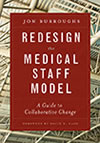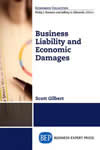All Articles
Accident Prevention & Safety
Human Resources
Accounting
Hydrology
Anger Management & Related Issues
Industrial Hygiene and Safety
Animals
Injury
Appraisal & Valuation
Internet Marketing
Blockchain Information
Investigation & Surveillance
Chemical Industry
Jails - Prisons - Correctional Facilities
Construction
Land Use
Counseling
Legal Issues
Criminology
Life Expectancy - Life Care Planning
Dental - Dentistry
Linguistics
Discovery & Electronic Discovery
Medical Malpractice
Domestic Violence
Mining
Elder Abuse
Oil & Gas
Electrical - Electrocution
Pain Management
Employment
Pharmacy & Pharmacology
Energy - Utilities
Plastic / Reconstructive / Cosmetic Surgery
Eyewitness Testimony
Product Liability
Failure Analysis
Professional Malpractice
Fires & Explosions
Psychology
Forensic Analysis
Securities
Forensics
Security
Hazardous Materials
Sexual Abuse - Molestation - Harassment
Healthcare Facilities - Hospitals
Telecommunication
Human Factors
Transportation
More...

MEDICAL-PAGE ARTICLES MAIN PAGE
. Contact Us if you are interested in having your work published on our website and linked to your Profile(s).
All Articles
Accident Prevention & Safety
Insurance
Anger Management & Related Issues
Insurance Coverage Analysis
Animals
International Trade
Aquatics Safety
Internet Marketing
Banking
Land Mapping - Surveying - Zoning
Boating
Life Expectancy - Life Care Planning
Branding - Brand Management
Manufacturing
Chemical Industry
Medical Malpractice
Child Witch Phenomenon
Nursing
Computer Forensics
Obstetrics - Gynecology (OBGYN)
Design
Oil & Gas
Documentation Examination & Analysis
Plants & Trees
Economics
Police Practices & Procedures
Elder Abuse
Politics
Employment
Pools and Spas (Recreational)
Energy - Utilities
Professional Malpractice
Exercise & Fitness
Professional Skills
Expert Witnessing
Psychiatry
Eyewitness Testimony
Psychology
Foreign Affairs - Geopolitics
Recreation & Sports
Forensic Analysis
Risk Management
Healthcare
Securities
Human Resources
Sexual Abuse - Molestation - Harassment
HVAC - Heating, Ventilation, Air Conditioning
Slip, Trip & Fall
Injury
Transportation
More...
Featured Articles
There are no active articles here at this time. Please use the search bar, try another category, or contact us if you would like to contribute an article.
This Article is unavailable. Contact Us
Search articles by title, description, author etc.
Sort Featured Articles
Featured resources
Redesign The Medical Staff Model: A...
by Jon Burroughs, MD, FACHE
Forensic Document Examination:...
by Katherine M. Koppenhaver
Business Liability and Economic Damages
by Scott Gilbert, PhD
Follow us










